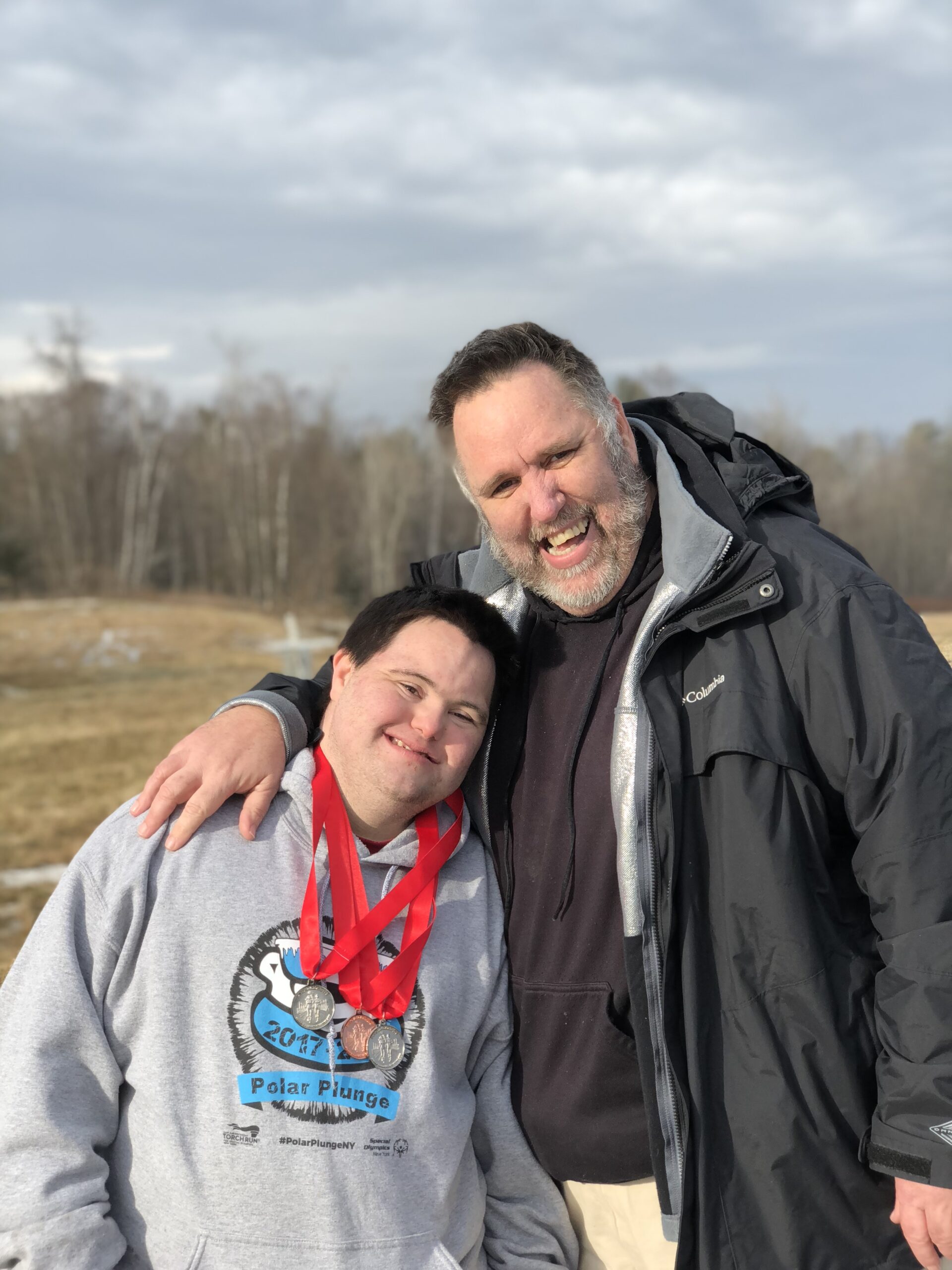Alzheimer’s and Down Syndrome: A Crisis We Can’t Ignore
As the parent of a son with Down syndrome, I’ve lived through the challenges, the joys, and the moments of deep concern that come with this journey. One concern has become especially urgent and not enough people are talking about it.
Over 90% of people with Down syndrome will develop Alzheimer’s disease if they live into their 60s.
That’s not just a statistic, it is a looming reality for my son John and so many families like ours.
A Deep Connection Most People Don’t Know About
Here’s why this happens. People with Down syndrome have an extra copy of chromosome 21. That’s the chromosome that carries the gene for amyloid precursor protein (APP), the same protein that leads to amyloid plaque buildup in the brain, which is a hallmark of Alzheimer’s.
That means individuals with Down syndrome are essentially genetically predisposed to develop Alzheimer’s. By age 40, almost everyone with Down syndrome shows the brain changes associated with Alzheimer’s even if they aren’t showing symptoms yet.
It’s heartbreaking. But there is hope.
Why We Partner with LuMind IDSC Foundation
We’ve found that hope through research and through the work of the LuMind IDSC Foundation. They’re leading the charge to understand how Alzheimer’s affects people with Down syndrome and what we can do about it. They connect families like mine with researchers, provide critical education, and work hard to make sure our community isn’t left behind in the fight against this disease.
LuMind IDSC is a charity partner of our business, John’s Crazy Socks. We donate to them through our Giving Back Program, but more than that we participate in the research. My wife Carol, our son John, and I are part of a medical study so scientists can better understand Alzheimer’s in people with Down syndrome.
And when John and I speak at conferences and events around the country, we don’t just talk about socks or inclusion, we talk about Alzheimer’s. We talk with families who are scared. We encourage them to join studies. We let them know they are not alone.
John says it best:
“This work matters. It helps my friends. It helps me. We want to spread happiness and support research that makes a difference.”
Why It Matters for Everyone
Even if you don’t have a loved one with Down syndrome, this issue still matters. Because understanding how Alzheimer’s develops in this community can help us understand the disease better for everyone.
Right now:
- Clinical trials are underway, more than ever before.
- New diagnostic tools using blood tests are being developed.
- Researchers are learning how Alzheimer’s progresses in people with Down syndrome and how we can intervene earlier.
But we need more awareness. More participation. More action.
What You Can Do
If you’re reading this, you can be part of the solution. Here’s how:
- Learn the signs of Down syndrome-associated Alzheimer’s (DS-AD). If your loved one is over 40, talk to your doctor.
- Support LuMind IDSC Foundation. Visit their website, sign up for their newsletter, donate if you can. www.lumindidsc.org
- Consider participating in research. It’s how we get answers. LuMind lists current studies on their website.
- Talk about it. Help others understand this critical connection. Alzheimer’s is not just an aging issue, this is a matter of disability justice issue, too.
We’re in This Together
At John’s Crazy Socks, we say our mission is to spread happiness and part of that mission means facing hard truths. We believe in shining a light on what matters, and this issue matters deeply to us.
We’re not medical researchers, but we can raise our voices. We can share our story. We can connect others to the research that might one day save lives.
Please help us spread the word. Together, we can bring visibility, funding, and momentum to one of the most urgent challenges facing the Down syndrome community today.
Let’s be loud. Let’s be hopeful. And let’s never stop fighting for the people we love.
— Mark X. Cronin
Co-Founder, John’s Crazy Socks
Co-Founder, Abilities Rising




